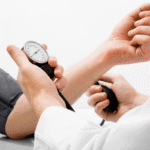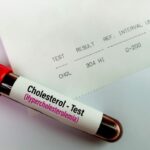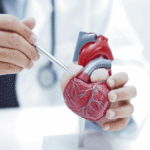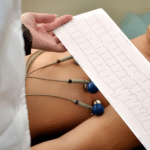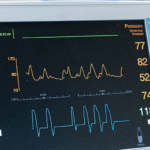Congenital Heart Disease (CHD) refers to heart defects present at birth. These defects can range from simple holes between heart chambers to complex abnormalities involving valves and blood vessels. While some CHDs are detected during infancy, others may not become apparent until adulthood. Individuals with a family history of CHD, those exposed to certain medications or infections during pregnancy, or those with genetic syndromes are at increased risk. Early diagnosis and treatment are vital to improve outcomes and quality of life.
Causes & Risk Factors
The exact causes of CHD are often complex and multifactorial. Genetic factors play a significant role, with chromosomal abnormalities like Down syndrome increasing the risk. Environmental factors, such as maternal exposure to certain medications, alcohol, or infections like rubella during pregnancy, can also contribute. While lifestyle factors like smoking, obesity, and high cholesterol generally affect acquired heart disease, maternal lifestyle does play a role during pregnancy concerning CHD. In many cases, the cause remains unknown.
Symptoms
Symptoms of CHD can vary widely depending on the type and severity of the defect. Infants may exhibit bluish skin (cyanosis), rapid breathing, poor feeding, or failure to thrive. Older children and adults may experience shortness of breath, fatigue, chest pain, or palpitations. Mild CHD might cause no symptoms, while severe CHD can lead to heart failure. If you or your child exhibit persistent symptoms like shortness of breath, bluish skin, or chest pain, seek immediate medical attention.
Diagnosis
Diagnosing CHD involves a combination of physical examination, medical history, and diagnostic tests. An echocardiogram is the primary imaging test to visualise the heart’s structure and function. An electrocardiogram (ECG) can detect abnormalities in heart rhythm. Chest X-rays can show enlargement of the heart or lungs. In some cases, cardiac MRI or cardiac catheterisation may be necessary. Prenatal ultrasounds can detect certain CHDs before birth, allowing for early planning of treatment. Early detection is paramount for optimal outcomes.
Treatment Options
Treatment for CHD depends on the type and severity of the defect. Some simple defects may resolve on their own, while others require intervention. Medications like diuretics, ACE inhibitors, or beta-blockers can help manage symptoms. Medical procedures such as cardiac catheterisation (to close holes or widen narrowed valves) or open-heart surgery may be necessary to repair complex defects. Regular follow-up with a cardiologist is essential.
Complications & Risks
Untreated CHD can lead to serious complications, including heart failure, pulmonary hypertension, and endocarditis (infection of the heart lining). Certain CHDs can increase the risk of stroke or arrhythmias. Long-term effects can impact growth, development, and exercise tolerance. It’s essential to manage CHD effectively to minimise these risks and improve long-term outcomes.
Prevention & Management
Preventing CHD is challenging, but certain measures can reduce risk. These include avoiding alcohol and smoking during pregnancy, ensuring vaccinations are up to date (especially rubella), and managing pre-existing medical conditions like diabetes. Regular check-ups with a cardiologist are crucial for monitoring heart health and detecting any changes. Maintaining a healthy lifestyle with balanced nutrition and appropriate exercise is important for overall heart health.
If you or your child has a suspected or diagnosed CHD, it’s important to seek specialised care. Our experienced cardiologists provide comprehensive evaluations, accurate diagnoses, and personalised treatment plans for individuals with CHD of all ages. Don’t let a congenital heart defect limit your life. Schedule a consultation today and take the first step towards better heart health.

